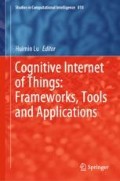Abstract
Fully-convolutional neural networks (CNNs) for semantic segmentation dramatically improve performance using end-to-end learning on whole images in a supervised manner. The success of CNNs for semantic segmentation depends heavily on the pixel-level ground truth, which is labor-intensive in general. To partially solve this problem, domain adaptation techniques have been adapted to the two similar tasks for semantic segmentation, one of which is fully-labelled, while the other is unlabelled. Based on the adversarial learning method for domain adaptation in the context of semantic segmentation (AdaptSegNet), this paper proposes to employ the conditional random field (CRF) to refine the output of the segmentation network before domain adaptation. The proposed system fully integrates CRF model with CNNs, making it possible to train the whole system end-to-end with the usual backpropagation algorithm. Extensive experiments demonstrate the effectiveness of our framework under various domain adaptation settings, including synthetic-to-real scenarios.
Access this chapter
Tax calculation will be finalised at checkout
Purchases are for personal use only
References
Geiger, A., Lenz, P., Urtasun, R.: Are we ready for autonomous driving? The KITTI vision benchmark suite. In: Proceedings of CVPR (2012)
Serikawaa, S., Huimin, L.: Underwater image dehazing using joint trilateral filter. Comput. Electr. Eng. 40(1), 41–50 (2014)
Lu, H., Li, Y., Mu, S., Wang, D., Kim, H., Serikawa, S.: Motor anomaly detection for unmanned aerial vehicles using reinforcement learning. IEEE Internet Things J. (2017). https://doi.org/10.1109/JIOT.2017.2737479
Lu, H., Li, Y., Chen, M., Kim, H., Serikawa, S.: Brain intelligence: go beyond artificial intelligence. Mob. Netw. Appl. 1–8 (2017)
Lu, H., Li, B., Zhu, J., Li, Y., Li, Y., Xu, X., He, L., Li, X., Li, J., Serikawa, S.: Wound intensity correction and segmentation with convolutional neural networks. Concurr. Comput. Pract. Exp. (2017). https://doi.org/10.1002/cpe.3927
Lu, H., Li, Y., Uemura, T., Kim, H., Serikawa, S.: Low illumination underwater light field images reconstruction using deep convolutional neural networks. Future Gen. Comput. Syst. (2018). https://doi.org/10.1016/j.future.2018.01.001
Chen, L.-C., Papandreou, G., Kokkinos, I., Murphy, K., Yuille, A.L.: Deeplab: semantic image segmentation with deep convolutional nets, atrous convolution, and fully connected CRFs. CoRR arXiv:1606.00915
Richter, S.R., Vineet, V., Roth, S., Koltun, V.: Playing for data: ground truth from computer games. In: Proceedings of ECCV (2016)
Ros, G., Sellart, L., Materzynska, J., Vazquez, D., Lopez, A.: The SYNTHIA dataset: a large collection of synthetic images for semantic segmentation of urban scenes. In: Proceedings of CVPR (2016)
Cordts, M., Omran, M., Ramos, S., Rehfeld, T., Enzweiler, M., Benenson, R., Franke, U., Roth, S., Schiele, B.: The cityscapes dataset for semantic urban scene understanding. In: Proceedings of CVPR (2016)
Goodfellow, I., Pouget-Abadie, J., Mirza, M., Xu, B., Warde-Farley, D., Ozair, S., Courville, A., Bengio, Y.: Generative adversarial nets. In: Proceedings of NIPS (2014)
Kingma, D.P., Ba, J.: Adam: a method for stochastic optimization. In: Proceedings of ICLR (2015)
Hong, S., Noh, H., Han, B.: Decoupled deep neural network for semi-supervised semantic segmentation. In: Proceedings of NIPS (2015)
He, K., Zhang, X., Ren, S., Sun, J.: Deep residual learning for image recognition. In: Proceedings of CVPR (2016)
Hoffman, J., Tzeng, E., Park, T., Zhu, J.-Y., Isola, P., Saenko, K., Efros, A.A., Darrell, T.: CyCADA: cycle-consistent adversarial domain adaptation. CoRR (2017). arXiv:1711.03213
Khoreva, A., Benenson, R., Hosang, J., Hein, M., Schiele, B.: Simple does it: weakly supervised instance and semantic segmentation. In: Proceedings of CVPR (2017)
Ioffe, S., Szegedy, C.: Batch normalization: accelerating deep network training by reducing internal covariate shift. In: Proceedings of ICML (2015)
Hoffman, J., Wang, D., Yu, F., Darrell, T.: FCNs in the wild: pixel-level adversarial and constraint-based adaptation. CoRR (2016). arXiv:1612.02649
Acknowledgements
This work was partly supported the National Natural Science Foundation of China (Grant No. 61881240048, 61701252, 61876093, BK20181393), and HIRP Open 2018 Project of Huawei.
Author information
Authors and Affiliations
Corresponding author
Editor information
Editors and Affiliations
Rights and permissions
Copyright information
© 2020 Springer Nature Switzerland AG
About this chapter
Cite this chapter
Sun, Y., Wu, X., Zhou, Q., Zhang, S. (2020). Domain Adaptation for Semantic Segmentation with Conditional Random Field. In: Lu, H. (eds) Cognitive Internet of Things: Frameworks, Tools and Applications. ISAIR 2018. Studies in Computational Intelligence, vol 810. Springer, Cham. https://doi.org/10.1007/978-3-030-04946-1_46
Download citation
DOI: https://doi.org/10.1007/978-3-030-04946-1_46
Published:
Publisher Name: Springer, Cham
Print ISBN: 978-3-030-04945-4
Online ISBN: 978-3-030-04946-1
eBook Packages: Intelligent Technologies and RoboticsIntelligent Technologies and Robotics (R0)

